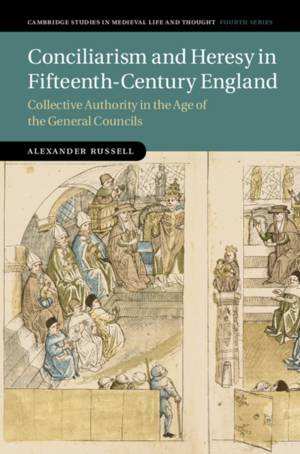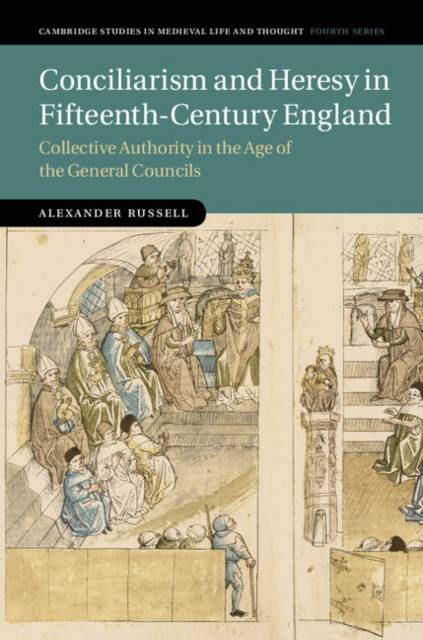
Bedankt voor het vertrouwen het afgelopen jaar! Om jou te bedanken bieden we GRATIS verzending (in België) aan op alles gedurende de hele maand januari.
- Afhalen na 1 uur in een winkel met voorraad
- In januari gratis thuislevering in België
- Ruim aanbod met 7 miljoen producten
Bedankt voor het vertrouwen het afgelopen jaar! Om jou te bedanken bieden we GRATIS verzending (in België) aan op alles gedurende de hele maand januari.
- Afhalen na 1 uur in een winkel met voorraad
- In januari gratis thuislevering in België
- Ruim aanbod met 7 miljoen producten
Zoeken
Conciliarism and Heresy in Fifteenth-Century England
Collective Authority in the Age of the General Councils
Alexander Russell
€ 183,45
+ 366 punten
Omschrijving
The general councils of the fifteenth century constituted a remarkable political experiment, which used collective decision-making to tackle important problems facing the church. Such problems had hitherto received rigid top-down management from Rome. However, at Constance and Basle, they were debated by delegates of different ranks from across Europe and resolved through majority voting. Fusing the history of political thought with the study of institutional practices, this innovative study relates the procedural innovations of the general councils and their anti-heretical activities to wider trends in corporate politics, intellectual culture and pastoral reform. Alexander Russell argues that the acceptance of collective decision-making at the councils was predicated upon the prevalence of group participation and deliberation in small-scale corporate culture. Conciliarism and Heresy in Fifteenth-Century England offers a fundamental reassessment of England's relationship with the general councils, revealing how political thought, heresy, and collective politics were connected.
Specificaties
Betrokkenen
- Auteur(s):
- Uitgeverij:
Inhoud
- Aantal bladzijden:
- 232
- Taal:
- Engels
- Reeks:
Eigenschappen
- Productcode (EAN):
- 9781107172272
- Verschijningsdatum:
- 10/07/2017
- Uitvoering:
- Hardcover
- Formaat:
- Genaaid
- Afmetingen:
- 165 mm x 239 mm
- Gewicht:
- 476 g

Alleen bij Standaard Boekhandel
+ 366 punten op je klantenkaart van Standaard Boekhandel
Beoordelingen
We publiceren alleen reviews die voldoen aan de voorwaarden voor reviews. Bekijk onze voorwaarden voor reviews.









